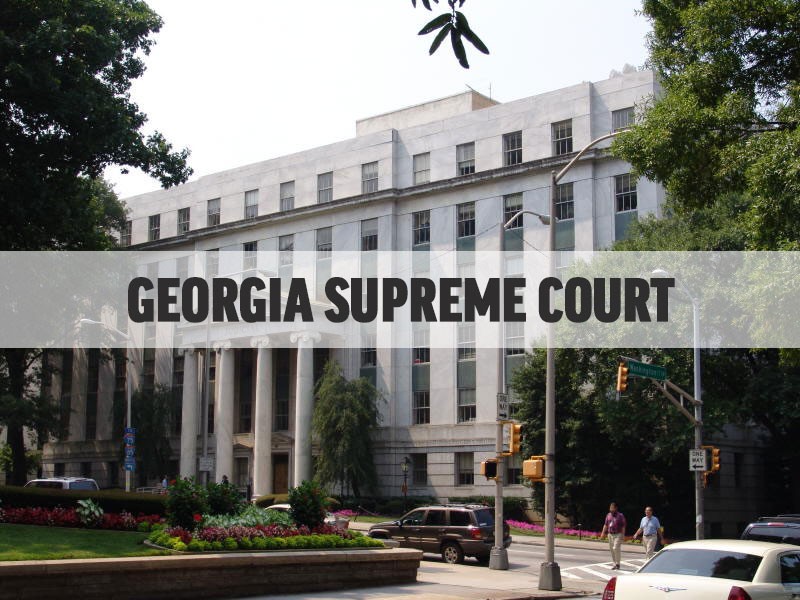Following a 2020 indictment and later conviction of three individuals related to a Gwinnett County homicide, the Supreme Court of Georgia has given its opinion on an appeal by one of the individuals.
The crimes reportedly happened at a Loganville home in February of 2020. Abraham Quintanar, Miguel Angel Gonzalez, and Sebastian Resendiz-Garcia were indicted on two counts of felony murder, two counts of aggravated assault with a deadly weapon, and two counts of criminal attempt to commit armed robbery.
Quintanar was also charged with possession of a handgun by a person under the age of 18. He was 15 at the time of the crime.
The charges stemmed from the shooting death of Marcus Gilead and an attempted armed robbery of Ciavy Wiles.
Quintanar’s appeal sought a new trial due to "cumulative errors” by the trial court in his conviction.
In February of 2024, Quintanar was found guilty on all counts and was sentenced a month later to serve life in prison with the possibility of parole for the felony murder, including an additional five years for possession of a firearm during the commission of a felony.
Quintanar contended that the court “erred by admitting his custodial statement, admitting testimony about a video recording that was not introduced into evidence, refusing to allow certain impeachment of a witness, and failing to give requested jury charges related to justification and mutual combat.”
He also contended that some parts of the state’s closing arguments amounted to “plain error.”
“Although we vacate Quintanar’s conviction and sentence for aggravated assault because it should have merged with his conviction for attempted armed robbery, we otherwise affirm Quintanar’s convictions…” the opinion read.
Georgia Supreme Court Justice John J. Ellington explained that evidence presented at the trial showed that the three individuals attempted to rob the victims at gunpoint, that Quintanar and Gilead fought for control of Quintanar’s gun, and that Quintanar shot and killed Gilead.
Further details showed that Gilead was a drug dealer and that Gonzalez had bought marijuana from him earlier in the day of the shooting. Gilead and Wiles were hanging out in Gilead’s car when the three individuals, all with guns, approached the victims wearing masks.
Gilead’s mother was home at the time of the incident, and Quintanar disposed of his gun in a sewer after fleeing.
Resendiz-Garcia was the first arrested, and law enforcement learned from him of Quintanar and Gonzalez’s involvement.
After fleeing from officers, Quintanar was located shortly after the crime and was interviewed by police.
He told police he was “tackled” by Gilead and grabbed the gun from him. “Quintanar ‘thought [Gilead] was going to shoot me’,” the opinion read.
Quintanar’s contention about admission of his custodial statement centered around the fact that it violated his due process rights because the statement “was not voluntarily made.”
The Supreme Court of Georgia concluded that the trial court did not err and that his custodial statement was voluntary.
Quintanar’s other contention regarding the trial court violating the “best evidence rule” centered around an officer’s testimony about body-camera video of his attempted traffic stop of Quintanar’s vehicle not being introduced into evidence.
The Supreme Court of Georgia deemed that the evidence did not contribute to the verdict Quintanar received.
Quintanar also argued that the trial court “wrongfully prevented him from fully cross-examining Resendiz-Garcia about the reduced sentence Resendiz-Garcia received in exchange for his testimony.”
The court determined that the error was “harmless beyond a reasonable doubt.”
Quintanar’s objection about the trial court failing to charge the jury on exercise of self-defense was also rejected, as the court said Quintanar was one of the initial aggressors.
“Whether Gilead acted in self-defense is not relevant to Quintanar’s culpability,” the opinion read.
Quintanar also took issue with certain parts of the state’s closing arguments. Namely, the state told the jury that the victim’s force was justified.
“Quintanar made no objection at trial to those portions of the State’s closing argument,” the opinion read.
Finally, Quintanar requested a new trial due to the “cumulative effect of the alleged errors.”
“Although we have assumed two errors by the trial court … we conclude that they do not warrant a new trial here,” the opinion read.

http://accesswdun.com/article/2025/6/1292237/teens-request-for-new-trial-in-2020-loganville-homicide-case-denied-by-ga-supreme-court
